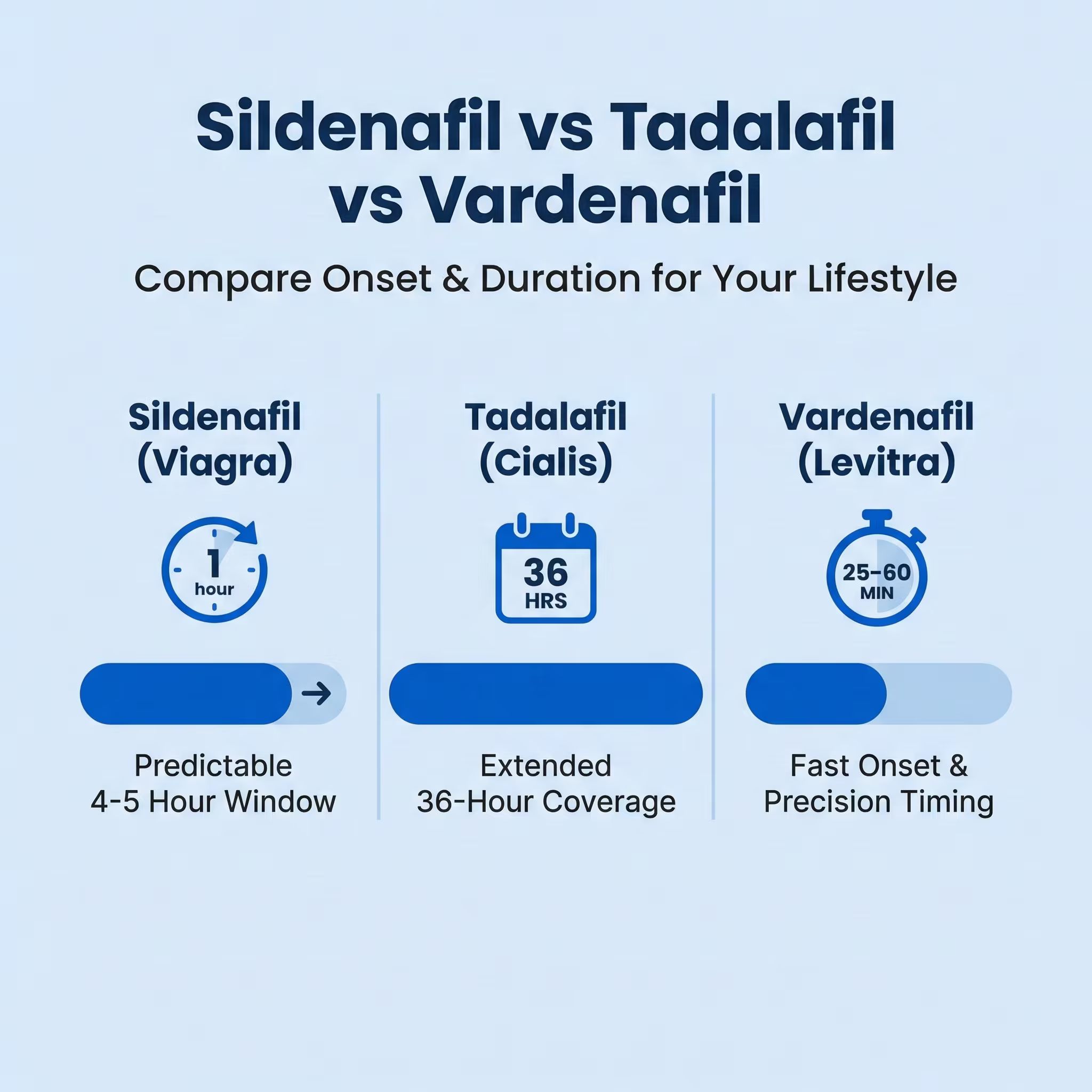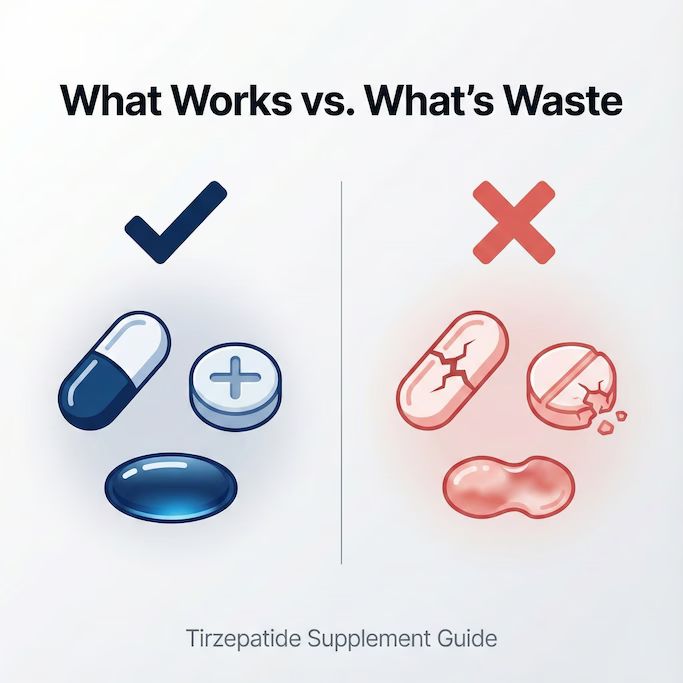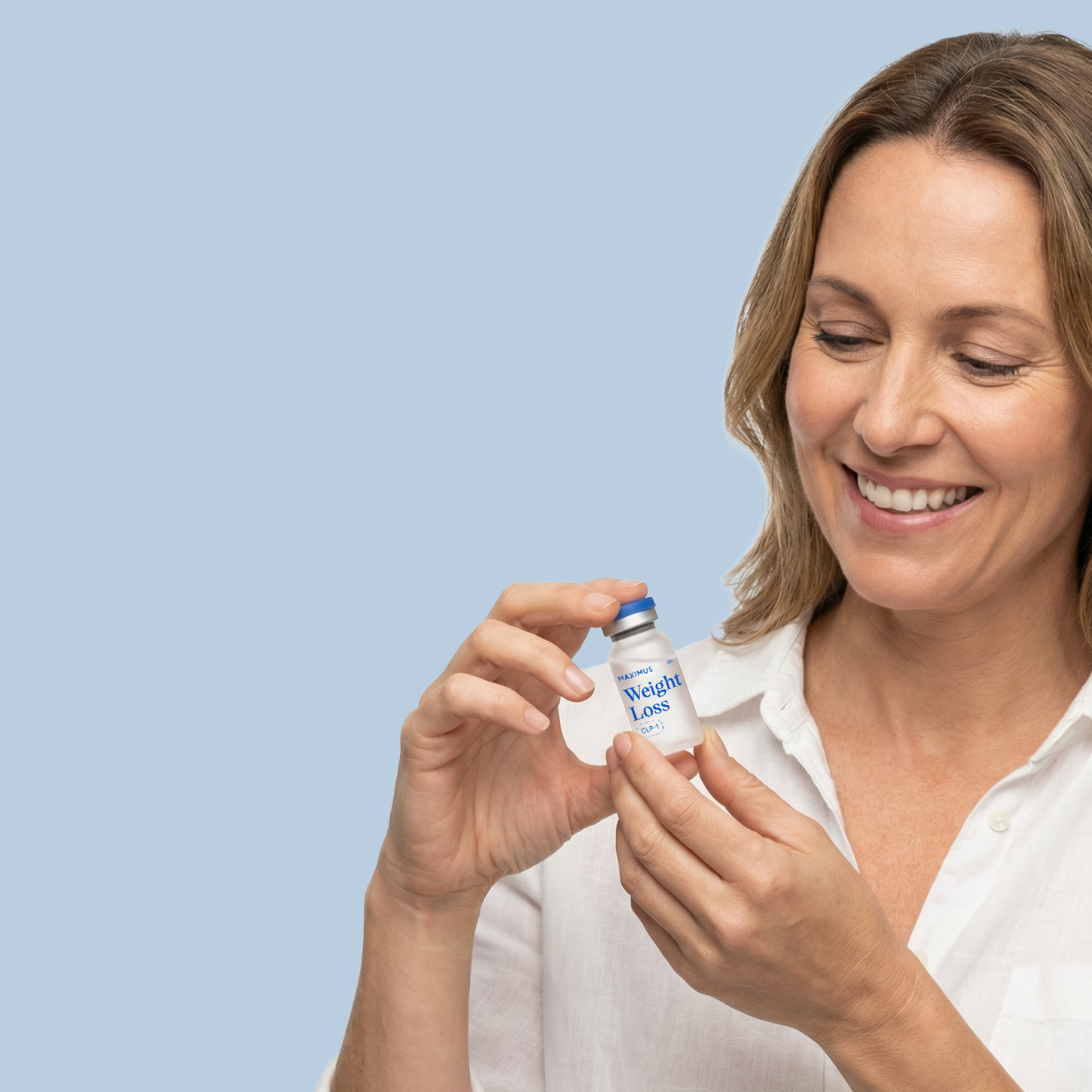Introduction
When it comes to hormones in the male body, testosterone gets most of the attention. But two other hormones are just as important when it comes to fertility, sex drive, and sexual function: luteinizing hormone (LH) and follicle stimulating hormone (FSH). In fact, your reproductive system relies on these two hormones working efficiently to stimulate testosterone production, testicular growth, and sperm maturation.
Find out more about how LH and FSH work, what happens when levels are too high or too low, and how to restore them without harmful side effects.
Key takeaways:
- Luteinizing hormone (LH) and follicle stimulating hormone (FSH) are two hormones that are integral to the male reproductive system by stimulating testosterone production, testicular growth, and sperm maturation.
- Abnormalities of LH and FSH levels typically result in low testosterone, or hypogonadism, caused by testicular issues or pituitary disorders.
- Taking a medication like enclomiphene can help restore your body’s ability to make testosterone by promoting healthy LH and FSH levels.
What is Luteinizing hormone (LH)?
Luteinizing hormone (LH) is a hormone produced by the pituitary gland that stimulates important processes in the reproductive system. In the female body, LH triggers ovulation and the production of progesterone to support pregnancy. In males, LH stimulates testosterone production, which is needed to produce sperm and develop male characteristics.
How does the body make LH?
LH production begins in the brain. Your hypothalamus secretes a hormone called gonadotropin-releasing hormone (GnRH), which signals your pituitary gland to release LH. LH then stimulates the interstitial Leydig cells in the testes to make testosterone.
Your body is also equipped with a self-regulating system to maintain normal LH levels. If the hypothalamus detects that levels are low, it will secrete more LH through the hypothalamic-pituitary-adrenal axis (HPA), also known as the “negative feedback loop.” When the body signals enough testosterone has been made, the hypothalamus will suppress the secretion of GnRH and shut down testosterone production.
LH function in the male body
The primary function of LH in the male body is to stimulate the production of testosterone, which plays a crucial role in sperm production, sex drive, and other aspects of male development. These functions include:
- Development of penis and testes
- Libido
- Ability to get an erection
- Male characteristics like body hair and deepening of voice
- Muscle growth
- Fat distribution
- Development of red blood cells
- Maintaining a balanced mood
What if LH levels are too high?
Normal levels of LH in men over 18 are around 1.8 to 8.6 IU/L. If levels are higher than normal, it may be the result of testicular damage from chemotherapy, radiation, an infection, or alcohol abuse. High LH levels may also be caused by a genetic condition like Klinefelter syndrome or overactive endocrine glands.
There is a correlation between high LH levels and low testosterone production, which increases the risk of infertility and sexual dysfunction in males. Some studies also show a connection between elevated LH levels and an increased risk of Alzheimer’s disease.
What if LH levels are too low?
Low levels of LH may indicate a disorder of the pituitary gland or the hypothalamus, such as a tumor or may be the result of Kallmann syndrome, in which there is an underdevelopment of certain neurons in the brain. Testosterone replacement therapy (TRT) has also been known to suppress LH production.
Research shows that LH deficiency is associated with infertility in males, and if it occurs before puberty, the development of secondary sexual characteristics may be halted. Without enough LH, the testes cannot efficiently synthesize testosterone, leading to loss of muscle mass, bone density loss, and loss of sex drive in men.
What is follicle stimulating hormone (FSH)?
Like LH, follicle stimulating hormone (FSH) is produced by the pituitary gland in the brain and helps to support the reproductive system in both males and females. In the female body, FSH helps to regulate the menstrual cycle and stimulates the growth of eggs in the ovaries. In the male body, FSH helps to control sperm production.
How does the body make FSH?
FSH is synthesized in the brain in the same way as LH through the communication between the hypothalamus and pituitary gland. But instead of the pituitary gland telling the Leydig cells to make testosterone, it tells the Sertoli cells in the testes to make and maintain sperm.
The hypothalamic-pituitary-adrenal axis (HPA) also helps to regulate normal FSH levels in the body. If it detects that there is enough testosterone and sperm produced, it will stop FSH production by halting the secretion of GnRH. The Sertoli cells will also produce the hormone inhibin, which slows spermatogenesis down.
FSH function in the male body
The primary function of FSH in the male body is to stimulate the production of sperm by interacting with Sertoli cells. Functions of FSH include:
- Sperm production and maturation
- Testicular growth
- Sex drive
- What if FSH levels are too high?
- Normal levels of FSH in men over 18 are around 1.5 to 12.4 IU/L. If levels are higher than normal, it may be due to the same issues that would cause elevated LH levels: testicular damage, a genetic condition like Klinefelter syndrome, or overactive endocrine glands. A brain tumor can also cause elevated FSH levels.
Some research shows that elevated FSH levels can also cause non-reproductive issues, such as bone loss and obesity. There is also evidence that too much FSH may contribute to cardiovascular and cancer risk.
What if FSH levels are too low?
Like LH, when FSH levels are too low, it may be the result of a pituitary disorder, such as a tumor. Testosterone replacement therapy (TRT) and steroid use have also been known to suppress FSH production.
Because it is required for the production and maintenance of sperm, when FSH levels are too low, a male may struggle with infertility or subfertility. Research shows that low FSH levels are not only associated with less sperm, but also lower sperm quality.
How do LH and FSH work together?
LH and FSH work together to accomplish reproduction in males by supporting both sexual function and spermatogenesis. Research shows that the joint action of testosterone and FSH triggers and maintains sperm production. And because testosterone is made by LH and both LH and FSH are released by the pituitary gland, changes in their levels often occur at the same time.
Symptoms of abnormal LH and FSH levels
Abnormalities of LH and FSH levels typically result in low testosterone, or hypogonadism. There are two types of hypogonadism:
- Primary hypogonadism: This occurs when testosterone levels are decreased alongside high levels of luteinizing hormone (LH) and follicle stimulating hormone (FSH), suggesting a testicular problem.
- Secondary hypogonadism: When low testosterone levels occur alongside low or normal levels of LH and FSH, there may be a problem with the pituitary gland or hypothalamus.
Along with contributing to sexual dysfunction and infertility there is a correlation between abnormal sperm motility and morphology and abnormal FSH and LH levels.
Other symptoms of hypogonadism that may indicate abnormal LH and FSH levels are:
- Decreased sex drive
- Fatigue
- Depression
- Difficulty concentrating
- Hair loss
- Decreased muscle mass
- Development of breast tissue
- Loss of bone mass
Risk factors for abnormal LH and FSH levels
Many conditions contribute to abnormal LH and FSH levels and depend upon whether you have primary or secondary hypogonadism.
Primary hypogonadism is associated with testicular injury, genetic conditions like Klinefelter syndrome, undescended testicles, and mumps orchitis. Secondary hypogonadism is related to pituitary disorders, Kallmann’s syndrome, inflammatory diseases, and medications like those used in testosterone replacement therapy (TRT).
Risk factors include:
- Advanced age
- Stress
- Obesity
- Cancer
- HIV/AIDS
- Excessive drinking and smoking
What to do about low LH and FSH
Because abnormal LH and FSH levels are associated with low testosterone, some people may think that testosterone replacement therapy (TRT) will help. But TRT has proven to be detrimental to the natural process of making testosterone because it further disrupts the balance of LH and FSH. While it may help improve symptoms of low testosterone, it will not restore your body’s ability to make testosterone.
Certain medications like those containing enclomiphene can help restore your body’s ability to make testosterone by promoting healthy LH and FSH levels. Alongside better lifestyle habits like following a nutritious diet, exercising regularly, and getting adequate sleep, this approach addresses hypogonadism without causing dependency, hindering fertility, or disrupting your body’s natural balance of hormones.
Medication
Enclomiphene is a Selective Estrogen Receptor Modulator (SERM), which works by blocking estrogen in the brain. When this happens, the brain amps up the production of LH and FSH, stimulating the testes to produce more testosterone and more sperm.
Studies show that, when compared to TRT, enclomiphene was more effective in increasing testosterone and keeping levels consistently stable. In addition to supporting this process in the brain, enclomiphene also increases testicular size and function to sustain production of LH and FSH in the testes, unlike TRT which is associated with testicular shrinkage and dysfunction.
Lifestyle factors
But medication is just one component to testosterone restoration. The following lifestyle habits can also help:
- Following a healthy diet consisting of lean proteins, healthy fats, and complex carbohydrates
- Having a solid exercise routine
- Getting adequate sleep
- Cutting back on alcohol and smoking
- Reducing your stress levels
- Limiting exposure to endocrine disruptors like BPA and plastics
Find out more about how the our Testosterone Protocols can help restore and optimize testosterone production, whether you have low testosterone levels or you simply want the boost that comes with extra testosterone without the side effects associated with TRT. From increased energy to greater sexual function to more confidence, the Enclomiphene Testosterone Protocol helps you increase testosterone by 1.5 - 2.5X safely and effectively.
Learn more about our testosterone treatments.
Disclaimer: The contents of this article, including, but not limited to, text, graphics, images, and other information, is for information purposes only and does not constitute medical advice. The information contained herein is not a substitute for and should never be relied upon for professional medical advice. The content is not meant to be complete or exhaustive or to be applicable to any specific individual's medical condition. You should consult a licensed healthcare professional before starting any health protocol and seek the advice of your physician or other medical professional if you have questions or concerns about a medical condition. Always talk to your doctor about the risks and benefits of any treatment. Never disregard or delay seeking professional medical advice or treatment because of something you have read on this site. Maximus does not recommend, endorse, or make any representation about the efficacy, appropriateness, or suitability of any specific test, products, procedures, treatments, services, opinions, healthcare providers or other information contained herein. Maximus is not responsible for, nor will they bear any liability for, the content provided herein or any actions or outcomes resulting from or related to its use.










